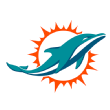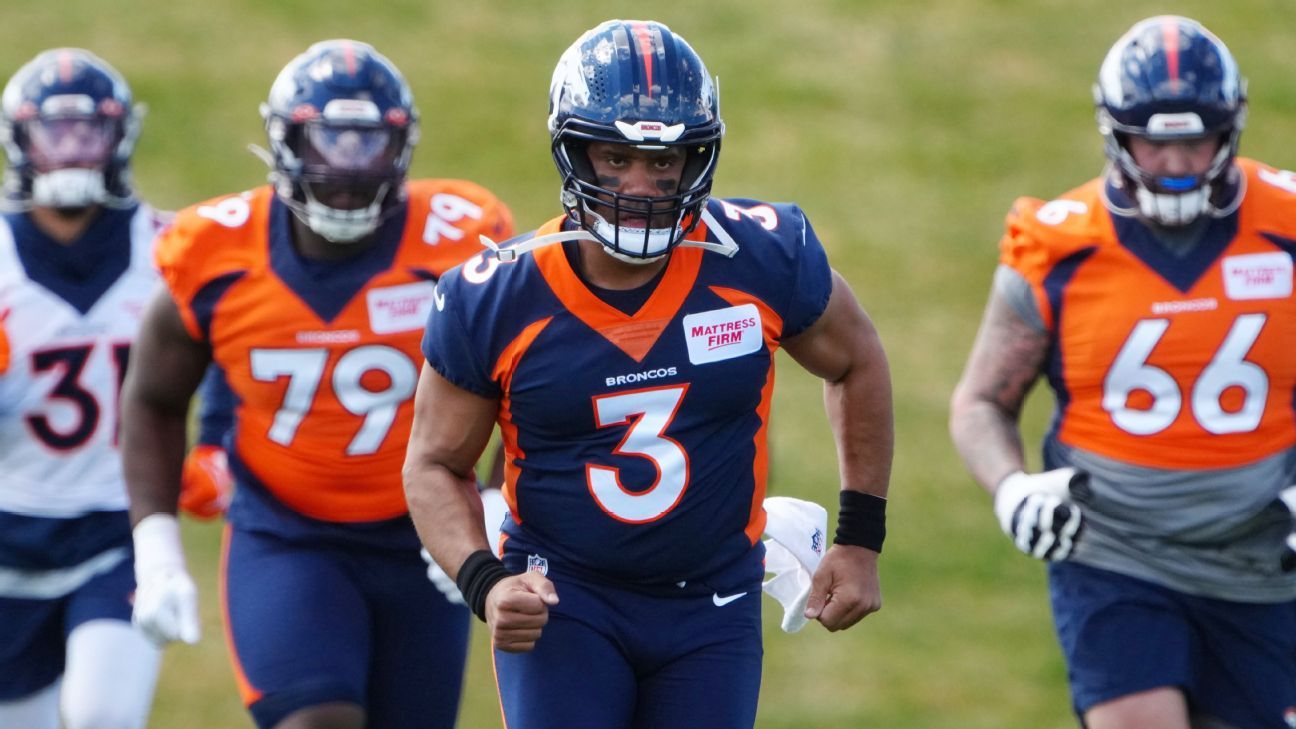
10. Miami Dolphins
What went right: Well, nobody is going to accuse the Dolphins of leaving Tua Tagovailoa stranded in the backfield. They threw everything they had at the wall to try to build a dominant offense around their third-year quarterback this offseason. After importing Terron Armstead and Connor Williams up front, keeping Mike Gesicki around on the franchise tag and signing Cedrick Wilson and Chase Edmonds in free agency, Miami traded five picks to the Chiefs for wideout Tyreek Hill, who signed a record deal as part of the move.It followed up by adding Sony Michel, Raheem Mostert and Alec Ingold to its backfield. For a Dolphins organization that spent last year considering a Deshaun Watson trade and seemingly waffling about committing its future to Tagovailoa, there are no excuses left. New coach Mike McDaniel and the rest of Miami's brain trust will find out what they need to know about the former Alabama star this season. I also liked the one-year, $6.5 million deal the Dolphins inked to sign Teddy Bridgewater, who might be a better quarterback than Tagovailoa in a fair competition.
The defense was mostly left alone, but Miami did manage to re-sign Emmanuel Ogbah to what's really a two-year, $37.7 million contract before adding Melvin Ingram on a one-year deal with $3.3 million in guarantees.
What went wrong: Xavien Howard is a great player, but even great players usually have to wait to renegotiate their contract until there's two years left on the existing deal. Howard was able to convince the Dolphins to rip up his old contract and hand out a new deal worth five years and $90 million, despite the fact there were still three years and $38.6 million left on his existing deal. It's a great deal for Howard, but it's not a fiscally responsible move from Miami. Most organizations manage to at least tack on years to an existing deal or move some money around to delay that new deal. It's not the end of the world, but this will be a difficult precedent to avoid for the Dolphins in the years to come with other players on their roster.
Did the Dolphins really need to tear up and re-do Xavien Howard's contract so soon? Matthew Stockman/Getty Images
While you can understand why they targeted Hill, it's difficult to see that deal working out. The Chiefs standout will make $72.8 million over the next three years, a $5 million leap past the likes of Davante Adams and Stefon Diggs. The Dolphins will have to throw on the surplus value of the picks they traded to acquire Hill, meaning an overall cost in the ballpark of $30 million per season. It's unclear why they needed to make this significant leap financially when the only other team in negotiations was the Jets, who Hill himself admitted weren't a realistic contender.
Spending that much to acquire a player who just turned 28, relies heavily on his speed and just spent the past four years playing with the best quarterback in football would raise some concerns for me. Hill is going to have moments when trading a first-round pick for him will feel like a bargain, but I think the Dolphins will look back in three years and believe they got the short straw in this deal.
What they could have done differently: One alternative would have been to use their money to sign another star lineman -- such as guard Brandon Scherff -- and then go into the draft at No. 29 overall and take a wide receiver. Miami couldn't have known exactly who would be available at that spot, but given the depth of this draft class, it would not have been left without a meaningful option. If Christian Watson (Green Bay) or George Pickens (Pittsburgh) emerges as a young, cost-controlled star while Hill struggles, the Dolphins could regret their aggressiveness.
What's next: Armstead and Williams were much-needed additions up front, but I would like to see the Dolphins add at least one more veteran offensive lineman to the fold. Given how much 2020 first-rounder Austin Jackson has struggled and the fact that Armstead hasn't completed a single full season as a pro, they could use another swing tackle. Mike Remmers or Bobby Massie would make sense as a backup for Liam Eichenberg at right tackle.

Barnwell ranks NFL offseasons from first to worst: How much better are the Broncos?
The Broncos have a franchise quarterback, while the Seahawks ... don't. Let's stack all 32 teams based on their offseason moves.






